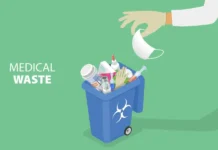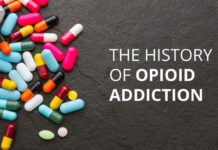Language barriers have posed great challenges in the past. The miscommunication and misrepresentation also have proved fatal for the medical and healthcare industry. It hinders effective communication between healthcare professionals and patients. Medicine translation hence has come to rescue patients from life-threatening situations due to language problems. It plays a critical role to overcome all language problems and hindrances. As it regulates the accurate and manageable transfer of medical information across languages. Bridging the language gap, medicine translation services help with improved and positive interactions among patients. It further enhances access to healthcare services. The role that medicine translation plays in promoting equity, quality of life, and inclusivity has no comparison.
Here are how medicine translation is benefitting the people involved.
Facilitating communication and understanding
Medical language translation services are vital for clear and transparent communication as well as understanding of the content and text. Language barriers can often lead to miscommunication and misinterpretations along with inadequate healthcare outcomes. Medicine translation comes to play its part and eliminates the hurdles with the help of the translation of medical information and also allows healthcare professionals to understand the patient’s symptoms, medical history, and concerns accurately. Once the healthcare staff and physicians understand the patient’s needs and concerns, healthcare providers are able to deliver better and appropriate medical recommendations with accurate and appropriate diagnosis. It further makes them work on better and more effective treatment plans. Likewise, translations make the patients understand their condition and diagnosis better. They can have their medications dully with a clear comprehension of treatment instructions. This empowers them to actively participate in the healthcare decisions and they can stick to the prescribed treatments.
Enhancing Access to healthcare services
Language barriers often deter individuals from seeking timely medical assistance. This leads to delayed diagnosis and adverse health outcomes. Medicine translation hence plays a pivotal role here and saves lives. It bridges the accessibility gap allowing healthcare facilities to offer services in multiple languages. The translation of medical forms, brochures, and websites also ensures that individuals who have limited proficiency in the local languages can access healthcare information in their preferred language. This naturally enhances access to healthcare services. Furthermore, the patients feel empowered with medicine translation services and can express themselves more transparently during their appointments, bookings, and reservations. Medicine translation contributes to expanded access to healthcare leading to early detection, timely interventions, and improved health outcomes, ultimately saving lives.
Promoting culturally sensitive care
Culture influences everything. Be it about the market norms of a region or medical practices, cultural factors influence these all including healthcare procedures and beliefs. The medical translators have to take care of cultural sensitivity too, as they are trained to consider context-specific translations that do not go against the patients’ cultural beliefs and backgrounds. Translators who possess the relevant attributes and understand cultural competence can better excel in medical translation. This also comes as a life savior where the cultural beliefs and sentiments of the patients are protected and patients can have peace of heart and mind as they receive care as per the cultural expectations. This makes the patient trust his physician with less risk of misdiagnosis and inappropriate treatment. Also, cultural coherence further leads to effective and patient-centered care.
Supporting emergency situations
Medicine and the best medical translation services also emerge as life saviors. Time is crucial in an emergency situation as every second counts. Therefore, clear communication is critical for both parties. Medical translation comes to help emergency responders and healthcare providers rapidly understand the patient’s medical history, allergy, and pre-existing condition saving lives. Moreover, it also assists during emergency evacuations and further ensures safety, and facilitates effective processes during emergencies. Not having translators on board can turn fatal during such scenarios leading to deadly consequences.
Enabling global collaboration and research
Translation in life science is now popular worldwide. It does not come from a single region and is a normal practice in every country now. Translating medicines and related text also allows researchers, scholars, and healthcare professionals to collaborate and conduct research together. The translation is evident for international collaborations and hence healthcare professionals from different countries put in better efforts. This collaboration demands the translation of research papers, medical guidelines, and conference presentations. This way they can learn from each other, can share their insights as well as can work on a positive approach for treatment. The global dissemination of medical knowledge and accelerated scientific progress is only possible with the help of professional medical translation solutions.
Conclusion
Medicine translation plays a significant role in saving lives all over the globe. It overcomes the language barriers. It helps the patients and physicians and facilitates effective communication. Both parties can understand each other well. It also asks for accurate diagnosis, appropriate treatment plans, and improved adherence to medical advice. Additionally, it enhances access to healthcare services for individuals with limited proficiency in the local language, leading to early detection and timely interventions. It also plays an important role in providing culturally coherent treatment to relevant audiences to make them feel trusted and comfortable.
Must Read: : What You Should Know About Palliative Care



































































